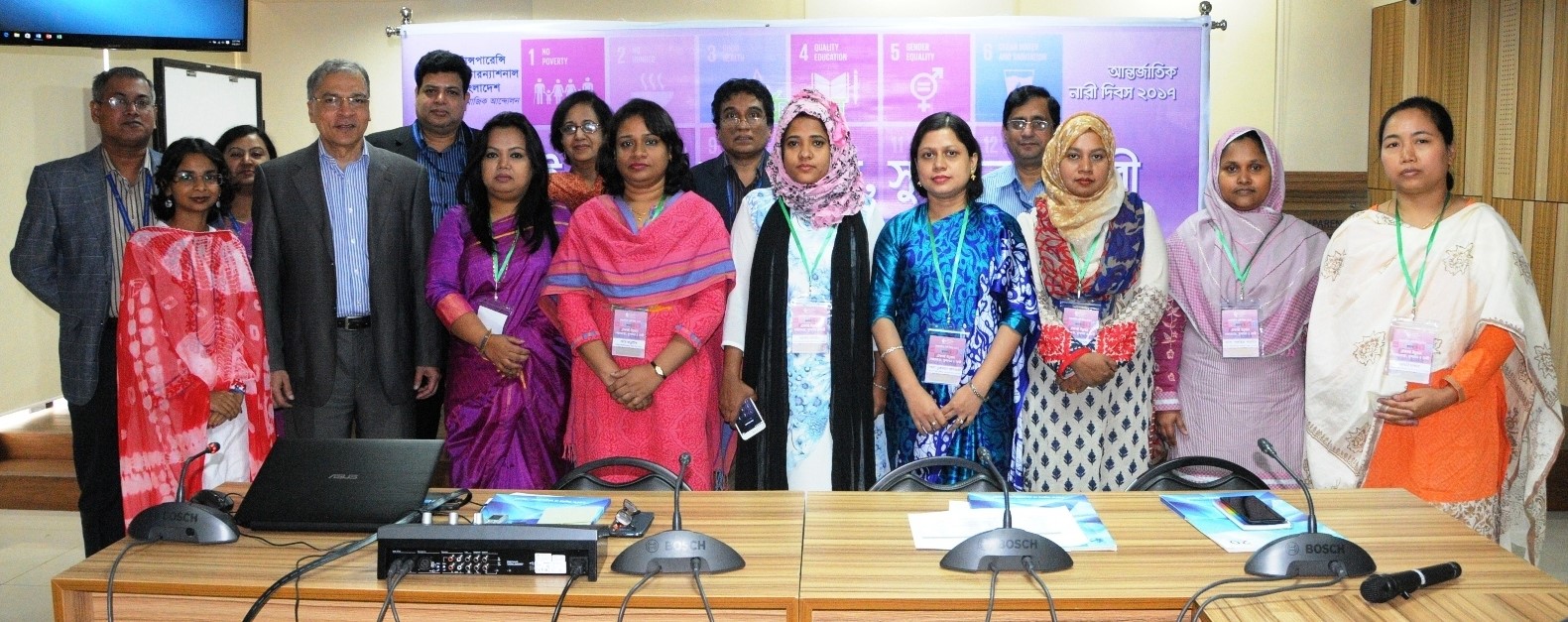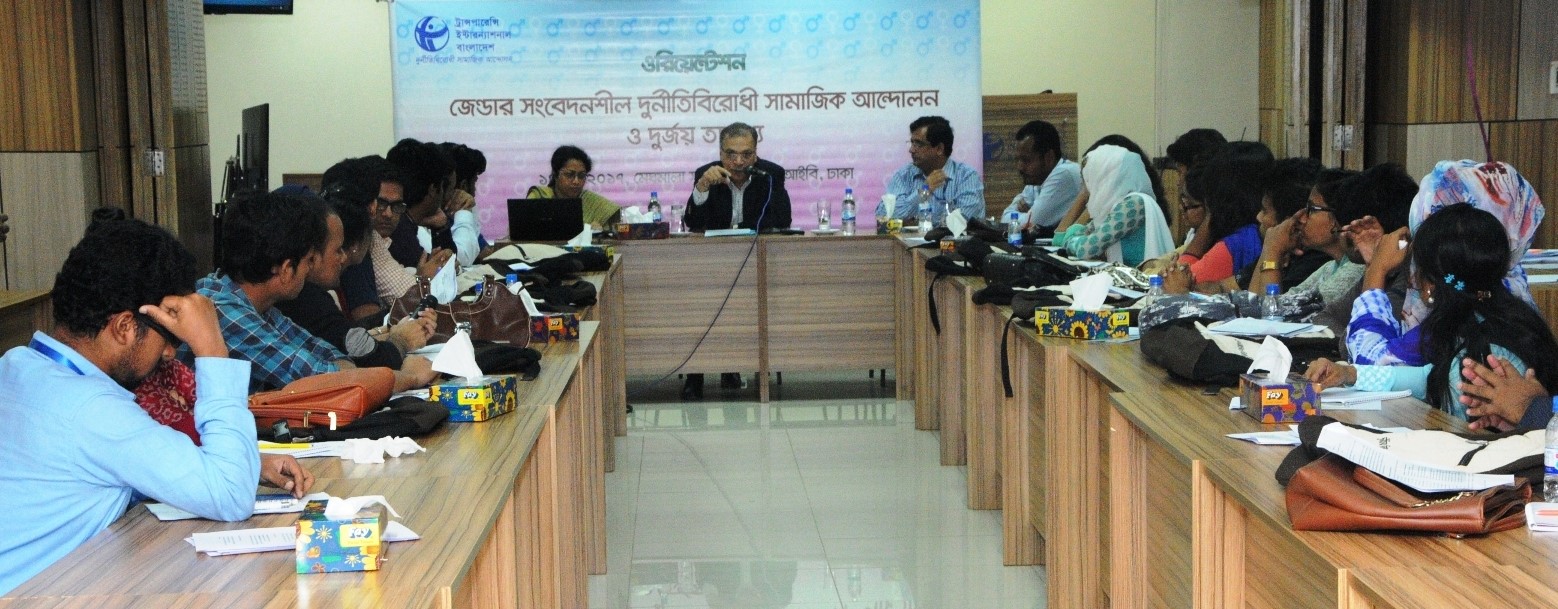Published: 06 March 2017
Corruption and gender are closely linked. Gender inequality spreads corruption and women are more likely to become victims of corruption then men. A Transparency International Bangladesh (TIB) study in 2015 found that women are not only victims of corruption, sometimes they are actors and instruments of corruption (full report here).
To generate greater awareness, TIB observed this year’s International Women’s Day with this theme: “Sustainable development and good governance: Need empowered women, awakened conscience”. The day was observed in 45 CCC areas by organizing rally, street theatre, discussion meeting and cultural program. TIB organized a workshop at national level with women government officials and youths.
On 6 March, 2017, TIB arranged a workshop titled ‘Sustainable development goals, good governance and women’ at Meghomala Conference room of TIB to discuss about the status and role of women in achieving the Sustainable Development Goals (SDGs) and ensuring good governance. Eight female Upazila Nirbahi Officers (UNO) of eight upazila from all the administrative divisions of the country participated in the event with the approval and assistance of Bangladesh government’s Cabinet Division. Besides, humanitarian activist Advocate U. M. Habibun Nessa and TIBExecutive Director Dr. Iftekharuzzaman; Deputy Executive Director Dr. Sumaiya Khair; Mohammad Rafiqul Hassan, Director of Research and Policy; and Outreach and Communication Director Rezwan ul Alam attended.
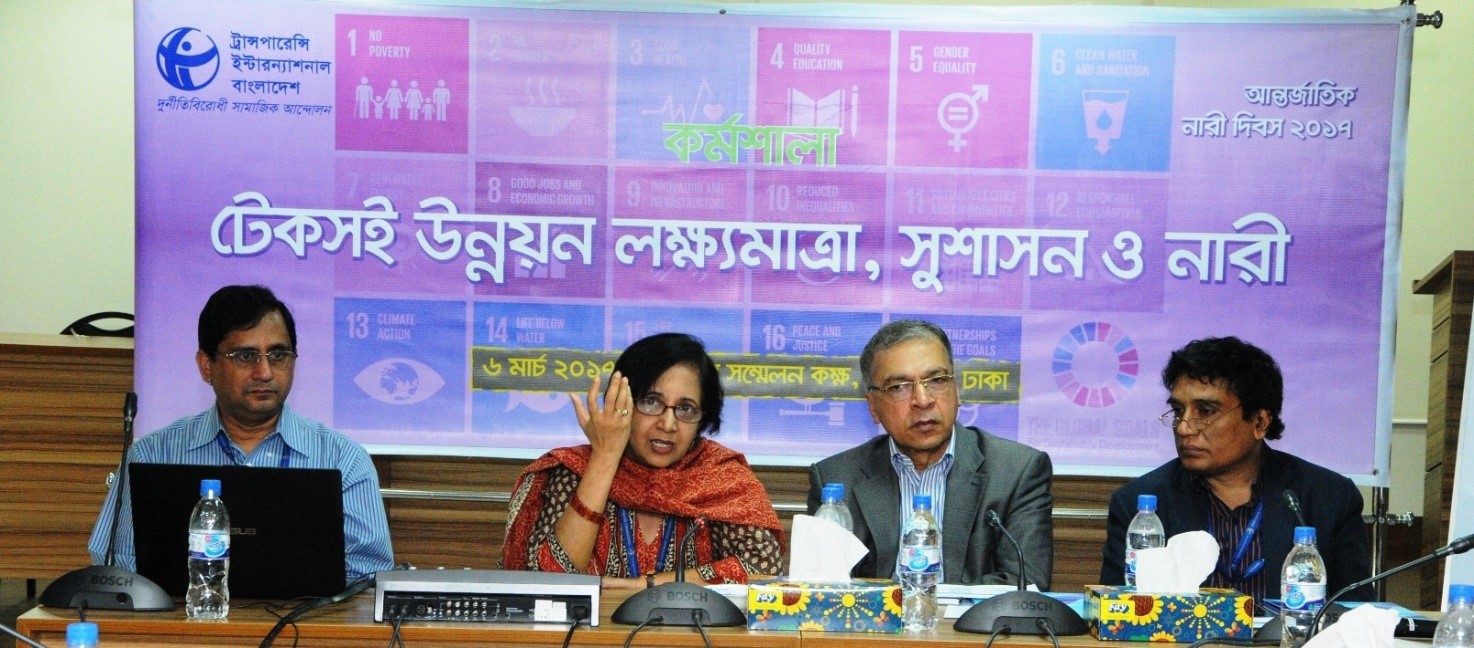
“Being inspired by the success of Millennium Development Goals (MDGs), women have to play effective role in successful implementation of SDG theme ‘leaving no one behind’- Dr. Sumaiya Khair”
The main purpose of the workshop was to inform and encourage the female government officials to play effective role in implementing the gender related goal 5 and good governance related goal 16 of SDGs.
In her welcome speech, Dr. Sumaiya Khair said that the contribution of women in establishing sustainable good governance with ensuring transparency and accountability in administration, is undeniable. She added that being inspired by the success of Millennium Development Goals (MDGs), women have to play effective role in successful implementation of SDG theme ‘leaving no one behind’.
The workshop kicked off with a presentation made by Rezwan ul Alam on ‘Sustainable Development Goals, good governance and women’, highlighting the synergy between SDG 16 and 5 with the 7th Five-year plan of Bangladesh, women rights and empowerment in SDG, intra-relationship between women and good governance and required actions to deal the challenges of women rights and empowerment.
Advocate U. M. Habibun Nessa facilitated an open interactive session on ‘Inclusive strategy in ensuring sustainable development: no one will be left behind’. The participants discussed about steps taken by female government officials in encountering antagonistic challenges related to governance, women rights and empowerment to achieve SDGs, current status, future prerequisite, innovative planning etc.
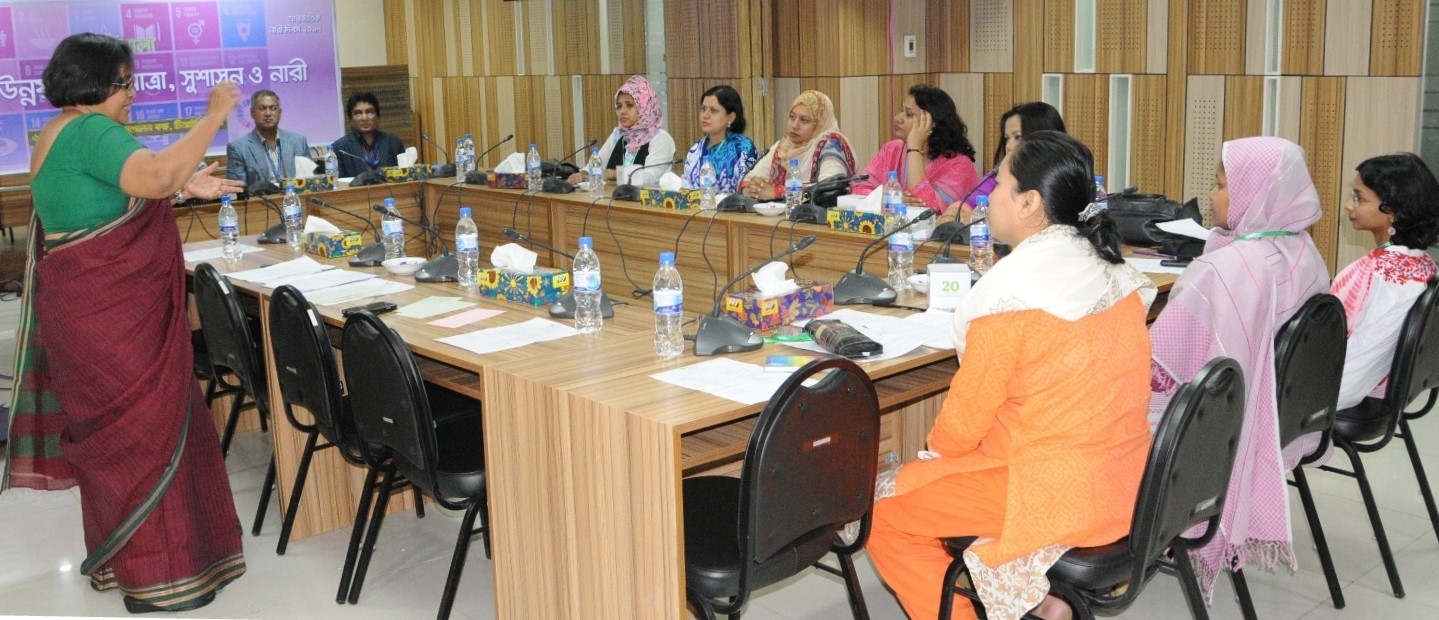
The female officials participated in a group activity on ‘Good governance in women right and empowerment process: 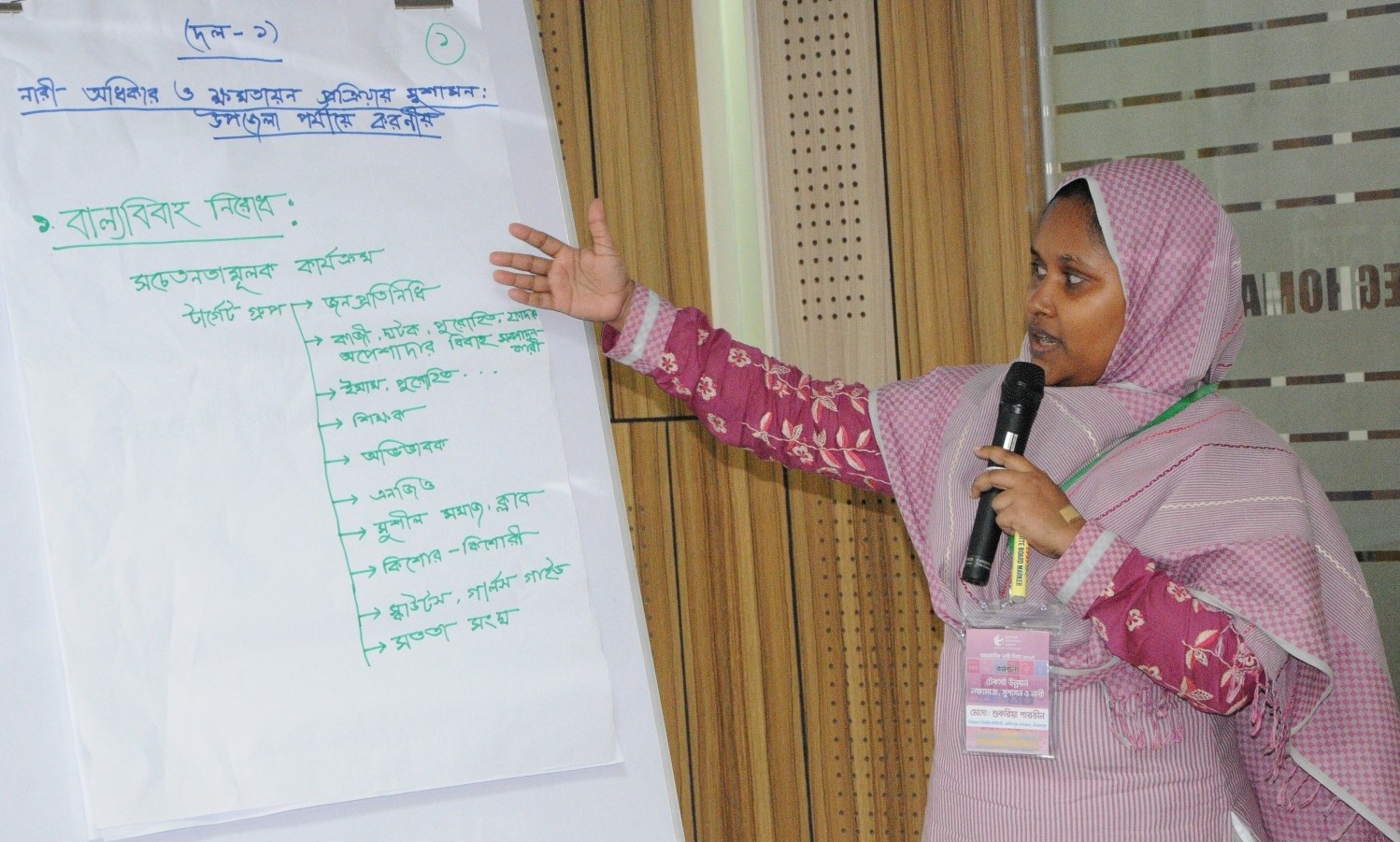 Recommendation for Upazila level’ and presented two findings. One group emphasized on child marriage prevention and ensuring property rights and recommended for proper implementation of Acts. The other group recommended to activate the ‘violence against women prevention cell’ and ‘legal aid committee’, suggested allocating fund for ‘Women Development Forum’ in Annual and Upazila development fund, to increase women’s participation in project planning and implementation committee etc.
Recommendation for Upazila level’ and presented two findings. One group emphasized on child marriage prevention and ensuring property rights and recommended for proper implementation of Acts. The other group recommended to activate the ‘violence against women prevention cell’ and ‘legal aid committee’, suggested allocating fund for ‘Women Development Forum’ in Annual and Upazila development fund, to increase women’s participation in project planning and implementation committee etc.
Recognizing the important role of media, NGO, private and individual organization along with government in achieving SDGs, Dr. Iftekharuzzaman said that SDG is more powerful than MDG in improving the quality of human life because of its universalism, transformative individuality and inclusivity.
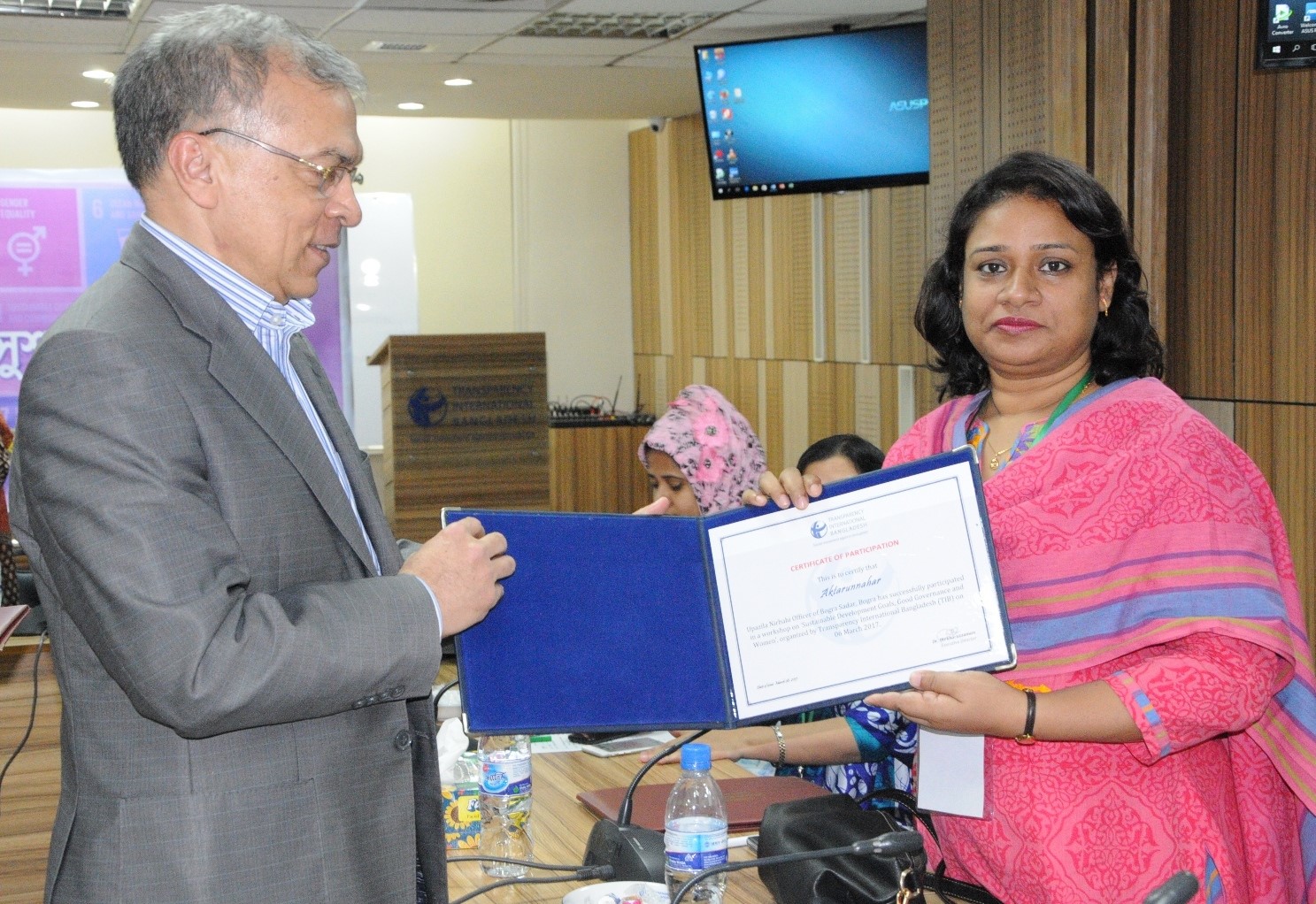
“SDG is more powerful than MDG in developing the quality of human life because of its universalism, transformative individuality and inclusivity”- Dr. Iftekharuzzaman
Appreciating the initiative of TIB, the participants expressed that this forum inspired them positively and they expected to share and apply these experiences among their networks.
